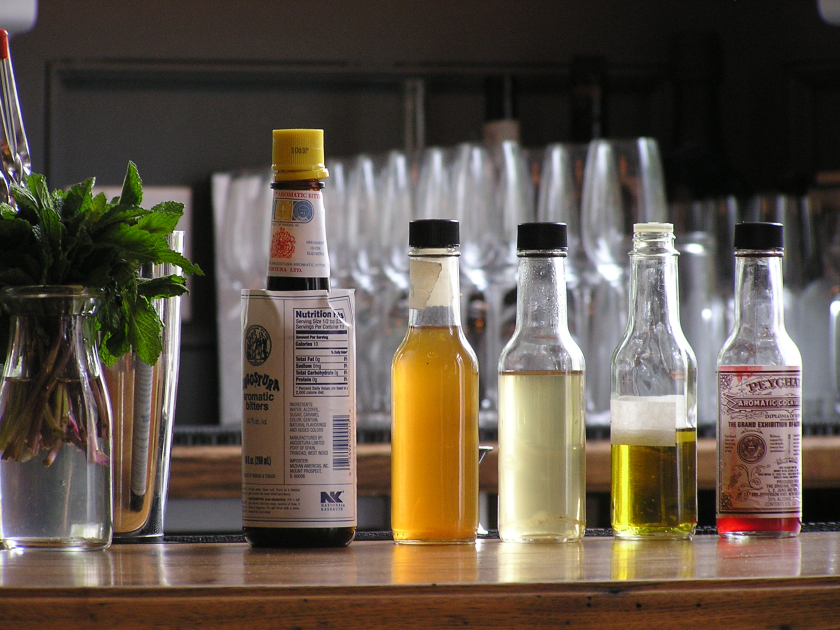Making & Selling Cocktail Bitters in Florida

Bitters are often called the spices of the cocktail world. Although alcohol is a primary ingredient in most cocktail bitters, they are treated differently than other alcoholic products under federal law and the laws of Florida.
Cocktail Bitters are Nonbeverage Products
Cocktail bitters are used to change or enhance the flavor of alcoholic cocktails. An Old Fashioned would just be whiskey and sugar without Angostura bitters. Cocktail bitters generally have three components:
- Bittering agents, like seeds, bark, or leaves
- Aromatic agents, like flowers, stems, or nuts
- Distilled alcohol, for stabilization
The inclusion of alcohol in cocktail bitters begs the question: are federal and state alcoholic beverage licenses required to make and sell bitters? No, because cocktail bitters are in the class of nonbeverage products, along with flavors, flavoring extracts and perfume.
Federal Regulation of Cocktail Bitters
Cocktail bitters are regulated as food ingredients by the US Food and Drug Administrative (FDA). Common cocktail bitters, like almond bitters, are considered “generally recognized as safe” (GRAS), in which case no additional approval is required. The FDA’s Food Additive Status List identifies the cocktail bitters (and other products) that are GRAS. For cocktail bitters that do not appear on the list as GRAS, a petition must be submitted to the FDA for approval. The packaging for cocktail bitters, like other food products, must comply with the FDA’s Food Labeling Guide.
Even though cocktail bitters are regulated by the FDA, the federal Alcohol and Tobacco Tax and Trade Bureau (TTB) is still involved in bitters manufacturing. Manufacturers of nonbeverage products, like cocktail bitters, may claim a “drawback” (a refund) for the federal excise taxes paid by that distilled spirits manufacturer. To claim a drawback, a cocktail bitters manufacturer must first submit for TTB-formula approval for each product for which a drawback will be claimed. Then, the manufacturer must submit a claim form and supporting data to the TTB.
Florida Regulation of Cocktail Bitters
In Florida, cocktail bitters are not regulated by the Division of Alcoholic Beverages and Tobacco (ABT) because they are not “alcoholic beverages.” This means that Florida’s Beverage Laws, which contain specific requirements and limitations on who can manufacture and sell alcoholic beverages do not apply to cocktail bitters, with one exception: a 1945 statute prohibits selling or giving bitters (or alcoholic beverages, essences, extracts, preparations, etc.) to any person identified as a “habitual drunkard.” The Florida Beverage Laws do appear to allow Florida licensed distilleries to sell distilled spirits to “other manufacturers,” including cocktail bitters manufacturers.
As a food product, cocktail bitters are subject to the Florida Food Safety Act and regulated by the Florida Department of Agriculture and Consumer Services. To manufacture and sell cocktail bitters at wholesale and retailer, a Florida company must apply for a Wholesale/Manufactured Food Establishment Permit. In addition, it appears that individuals can make and sell cocktail bitters under Florida’s Cottage Foods law. Cocktail bitters are not specifically included within the list of permitted cottage foods, but they do meet the requirement for not being a potentially hazardous food requiring time/temperature control for safety. The Division of Food Safety’s publication about Cottage Food Operations specifically mentions “vanilla” and “tinctures” as being permitted.
Are you interested in starting a new cocktails manufacturing business? Contact us to schedule a consultation with a beverage attorney.
Because we’re attorneys: Disclaimer. Updated January 31, 2023.

